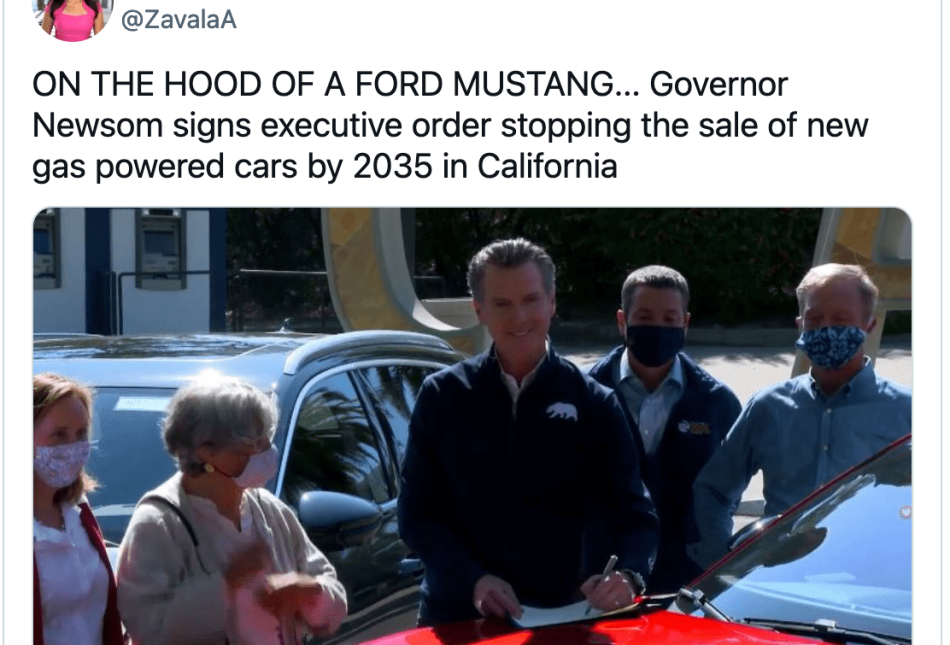Op-ed: Clean Car Rule is Lujan Grisham’s latest policy imposition


Gov. Lujan Grisham recently continued her attempt to simultaneously keep the oil and gas revenue spigot flowing while enacting enough policies from the radical environmental agenda to placate her political and fundraising base.
Her latest plan, known as the Clean Car Rule, was adopted by her handpicked Environmental Improvement Board (EIB). Governor-appointed boards are far more willing to do what they are told than are unruly and sometimes uncooperative (albeit overwhelmingly Democrat) legislative bodies with their own political calculations and aspirations.
Incredibly, New Mexico’s newly Clean Car Rule undermines democracy and self-government (along with our economy) by placing New Mexico automobile regulations under the control of another state, California. The current rules are California’s and if California changes them, New Mexico will have to go along with them or reverse course and opt out.
New Mexico’s new automobile standards will require roughly 7% of new cars sold in the State to be zero emission in 2025. In the latest report available (3rd quarter of 2021) zero emission vehicles amounted to just 2.29% of new vehicle sales in New Mexico. So, to comply with the new rule, sales of zero emission vehicles will need to just more than triple from Q3 of 2021 to 2025.
But the real kicker is by subjecting itself to California’s political whims New Mexico could be forced to adopt even more aggressive “Clean Car” standards soon. California Gov. Gavin Newsom has issued an executive order that, if adopted, would end the sale of gas-powered cars in California by 2035. Final adoption of that rule could come in California as early as this August.
If California enacts this rule, 35% of new cars, SUVs and small pickups sold in California (and thus New Mexico) must be zero-emission starting with 2026 models. That number will increase yearly, reaching 51% of all new car sales in 2028, 68% in 2030 and 100% in 2035.
“Just” tripling sales of electric vehicles (EV’s) in two years in New Mexico means dealerships will cross-subsidize EV’s by raising prices on gasoline vehicles or they will look to the State to further subsidize sales of “chosen” vehicles. This could make gasoline vehicles purchased in New Mexico more expensive leading to purchases made at out-of-state car dealers. That would result in lost jobs and tax revenues in New Mexico. That situation will get much worse if California (and New Mexico) adopt the even more aggressive rules being considered.
Current tax credits and subsidies include a $7,500 federal tax credit and various credits for upgrading connectivity to the electrical grid further help with deployment of electric vehicles. Of course, those credits and subsidies are paid for by increasing costs on taxpayers and utility rate payers.
Deployment of EV charging stations will be another expense associated with this plan. A recent report found New Mexico to have just 401 public charging stations statewide. And those need to be maintained. A recent report from EV-friendly San Francisco found that 27 percent of the Bay-areas charging stations were not functional.
All of this comes at a time when New Mexico’s largest utility (PNM) is keeping its coal fired power plant open just to keep the lights on and says it won’t have half the solar/battery replacement power needed to keep the lights on during the summer of 2023.
There are so many problems and costs with a drastic shift toward electric vehicles that at the very least New Mexico’s elected Legislature should have had a say, but instead we have a Governor in a tight reelection battle who wants to make big promises to environmental groups and their funders no matter how disruptive or damaging to New Mexicans and their livelihoods.
The fact is that the real costs of these unrealistic and damaging policies will be borne after this election. Sadly, that is all by design.
Paul Gessing is president of New Mexico’s Rio Grande Foundation. The Rio Grande Foundation is an independent, nonpartisan, tax-exempt research and educational organization dedicated to promoting prosperity for New Mexico based on principles of limited government, economic freedom and individual responsibility
